GYROKINESIS® Method: A photo gallery
Wondering what exactly Gyrokinesis method is? Angela Sutcliffe is a dancer, instructor and movement scholar. She’s also one of our Senior Trainers at MOVE. Get a sneak peek of what you can expect in a Gyrokinesis class in the photo gallery below while Angela talks us through why she loves this particular movement system.

When were you first introduced to Gyrokinesis?
In my college dance classes. I took ballet three to four times a week in college. Occasionally, we would do a Gyrokinesis class instead of ballet class to give our bodies a break from the intensive training. My body craved the ease of movement I found in those classes. Not that it was easy. But it was more focused on finding maximum movement potential with less muscular energy expenditure. Applying the principles I was learning in that class changed how I responded to dance training. I found myself less physically exhausted.
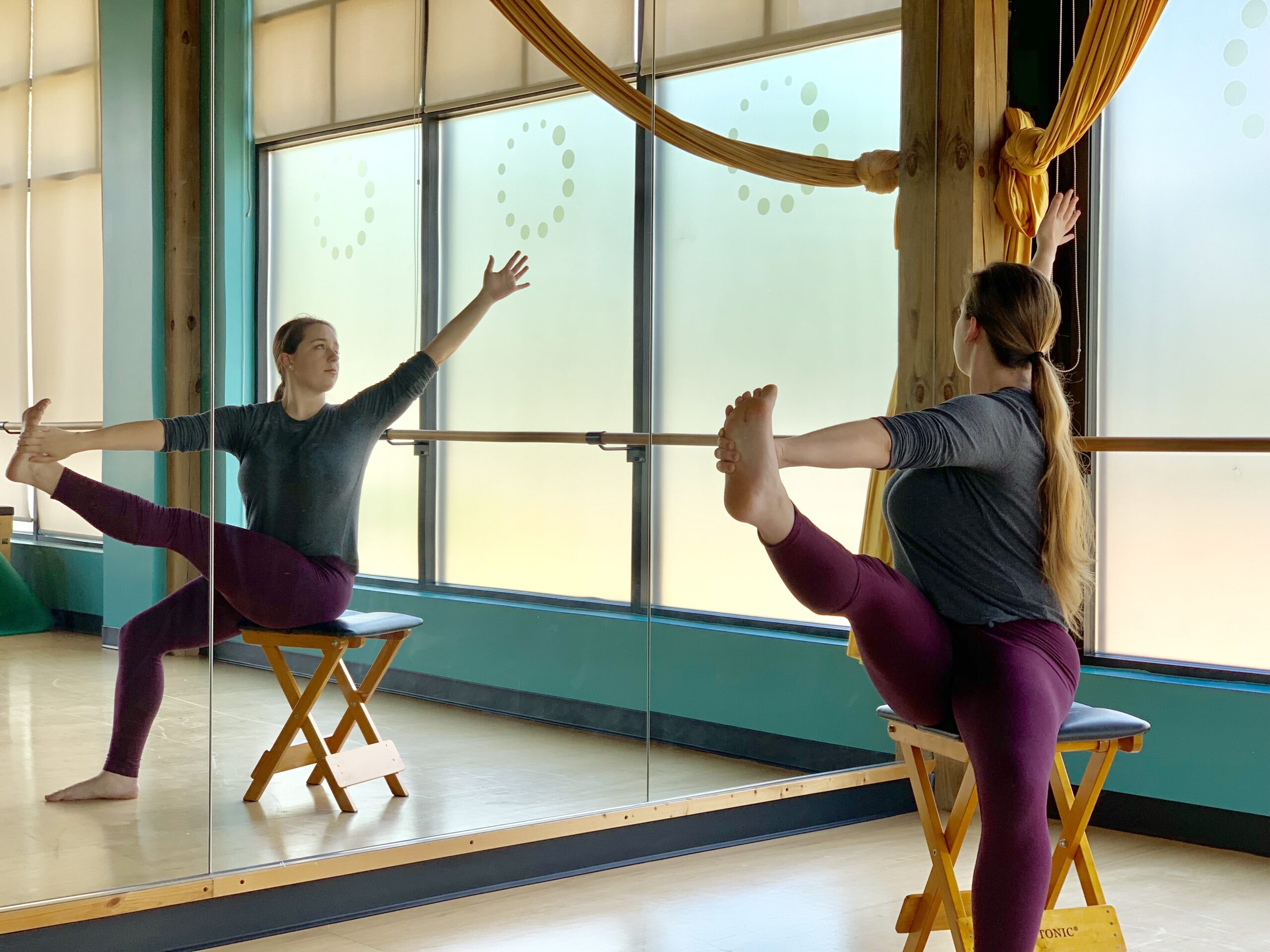
What made you want to start teaching Gyrokinesis?
At first, I wasn’t sure what teaching the method would offer me that would be so drastically different from what I was able to do with my clients in the GYROTONIC® method. Initially, my thought was, “Well, isn’t it just the same thing but without the fancy equipment?” Becoming a certified instructor for Pilates or the Gyrotonic and Gyrokinesis methods requires a huge investment of time, energy and money. And it was important to me to understand the value of the method before investing in more training.
I took several classes myself and ultimately decided this additional method would help me develop a more nuanced understanding of my work with clients in Gyrotonic sessions. It helped further shape the lens through which I observe movement, and that alone made it worthwhile.
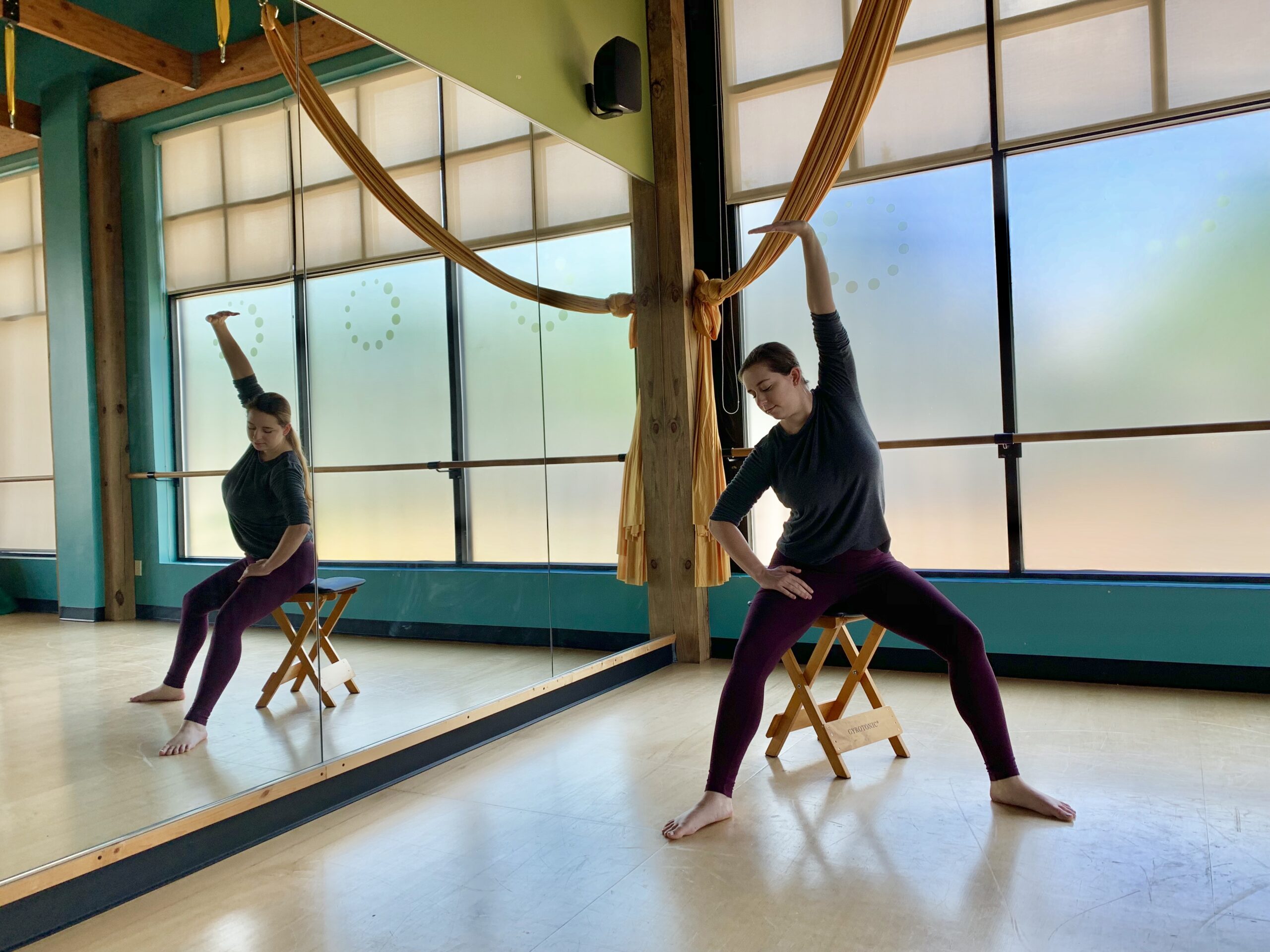
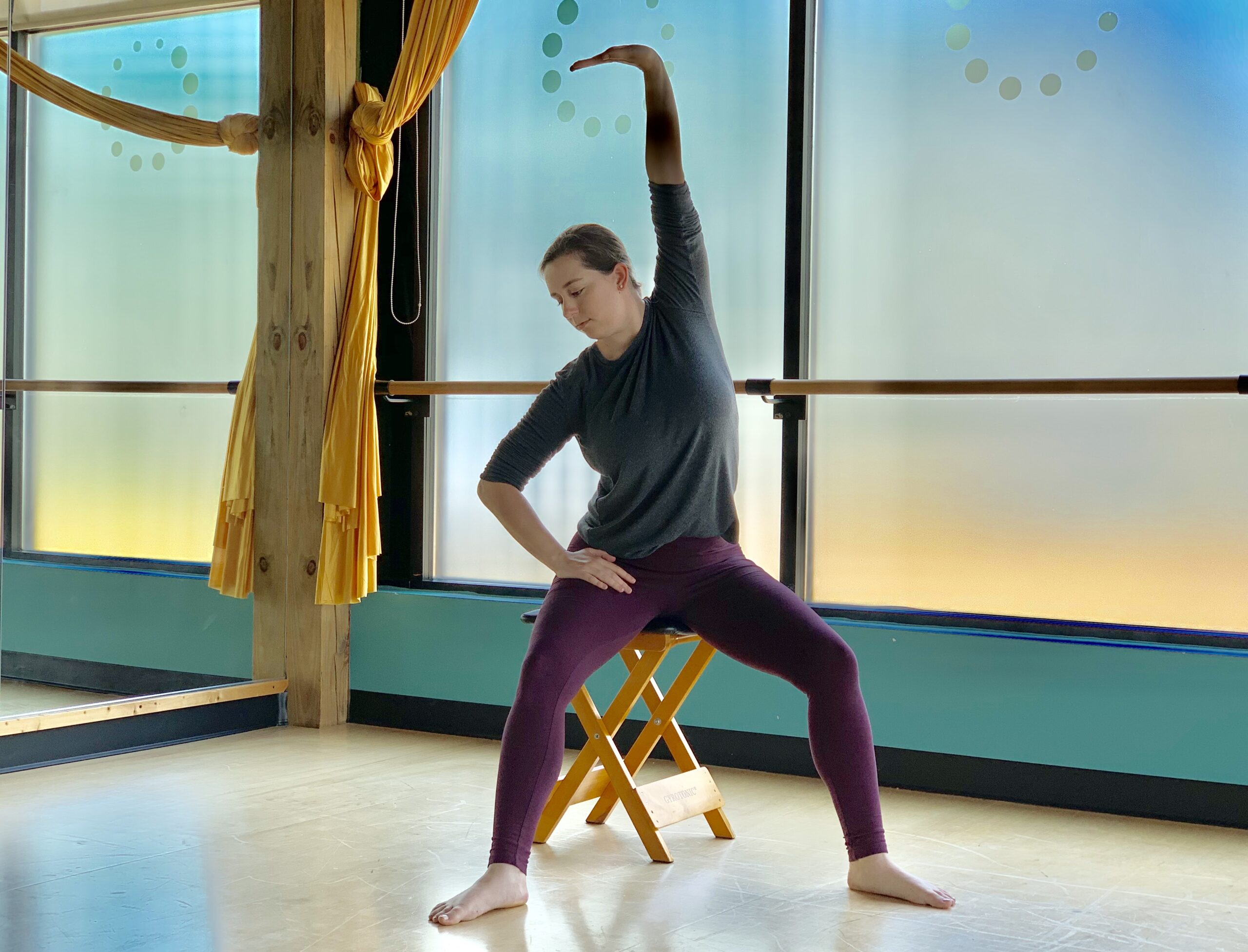
What do you love most about the Gyrokinesis method?
While Gyrokinesis is a structured class, there’s still opportunity to explore within the movement. The physical and verbal cues from the instructor are minimal. It’s an experiential class that allows you to gain more confidence and build a deeper integration the more you practice. It’s more about the movement truly becoming yours, rather than someone cuing you into different positions with their hands or voice.
Of course, that flexibility is also one of the most difficult aspects of the class for most people when they first start. You may feel like you’re flailing for the first couple of classes. When I first started, I found myself wishing the instructor would just break down the movement for me so that I could get it exactly right the first time. That’s just it though, there’s no “right.” There’s just your exploration of the movement.
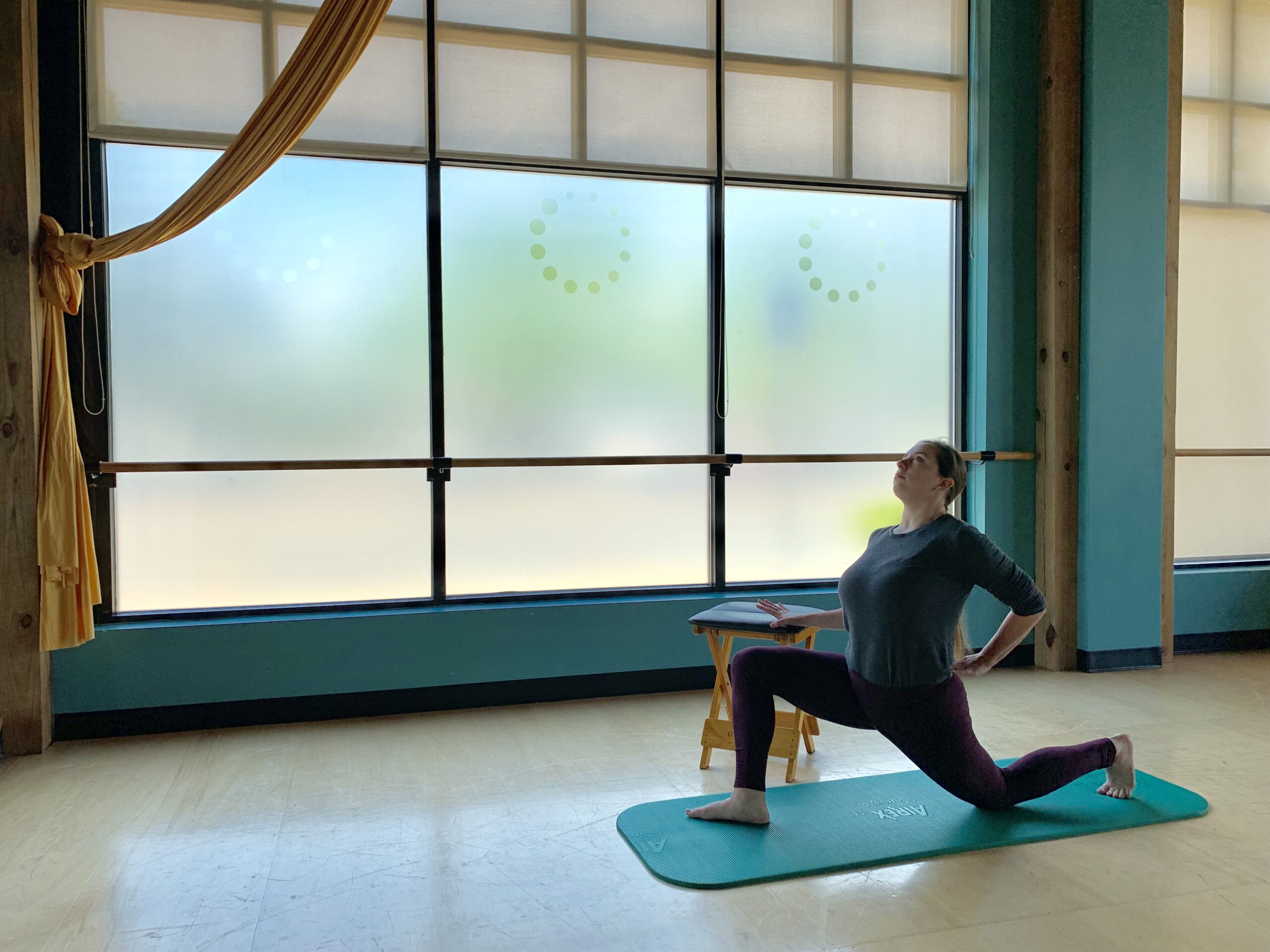
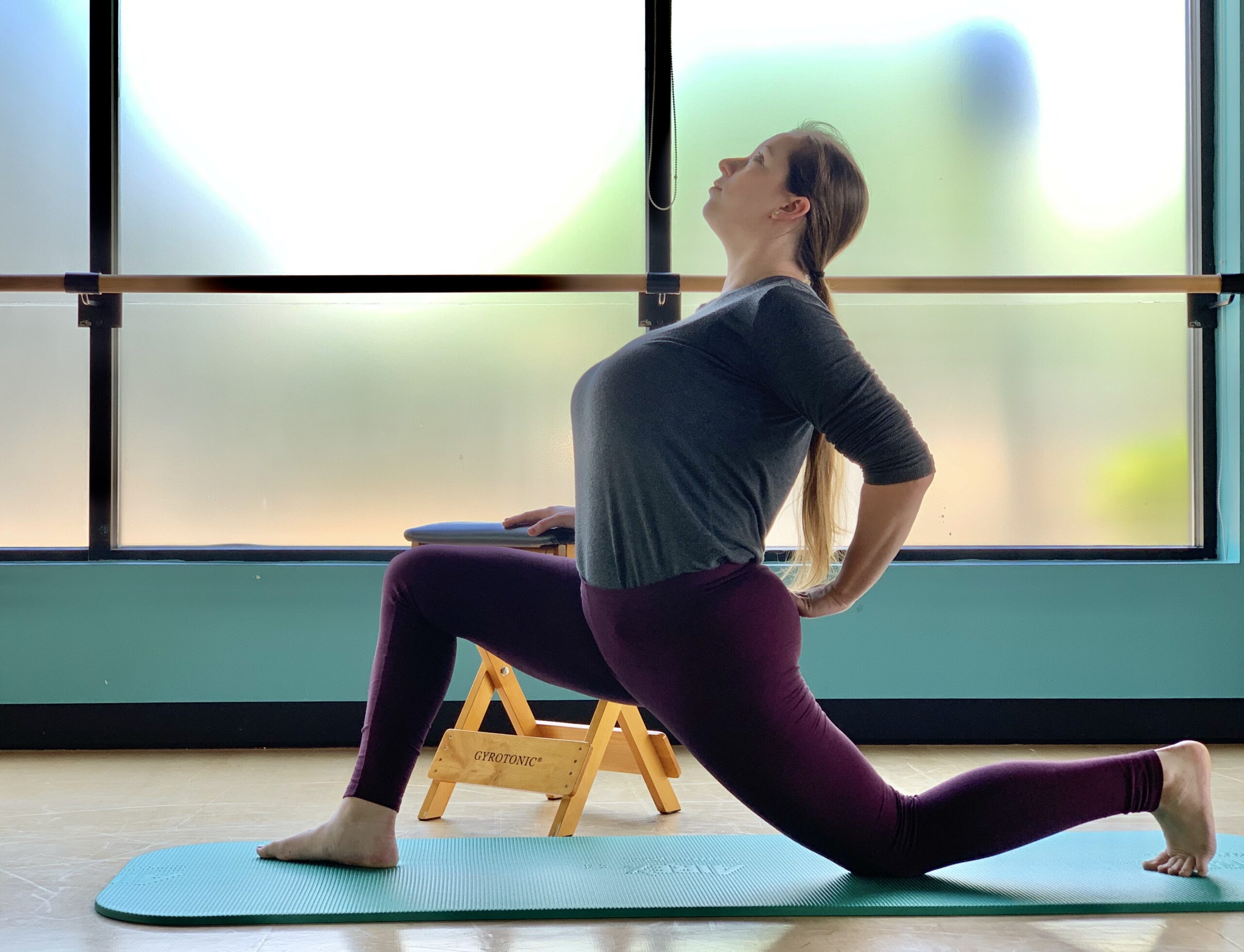
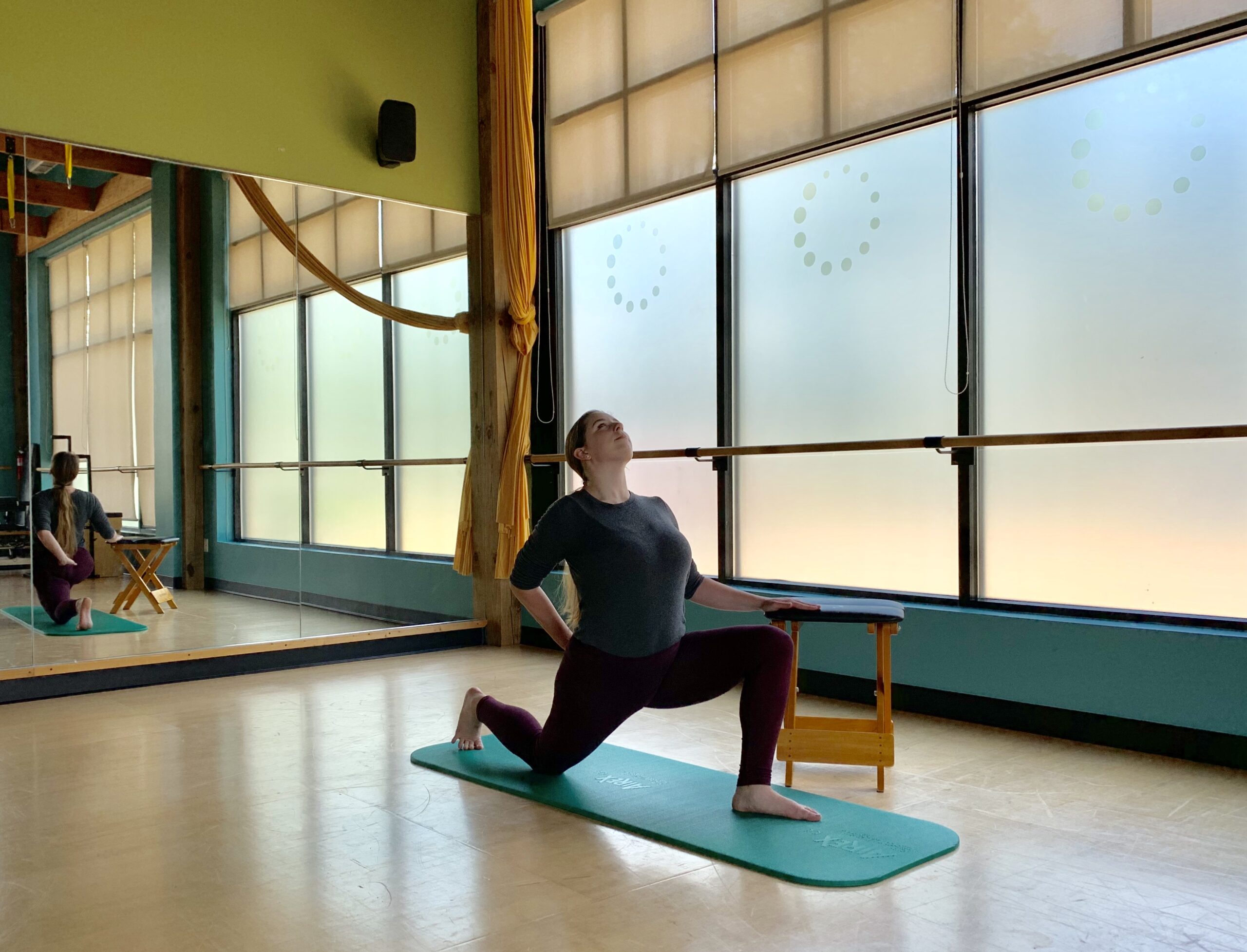
Do you have a favorite pose?
My personal favorite is the hip-knee mobilization series. It’s a series of connected movements on the floor in which you’re working to find opposition through the legs and what we call “narrowing” to find space in the hip joints. We create more freedom of movement and less compression through these joints and allow the pelvis to roll or glide over the head of the femur bones with less restriction.

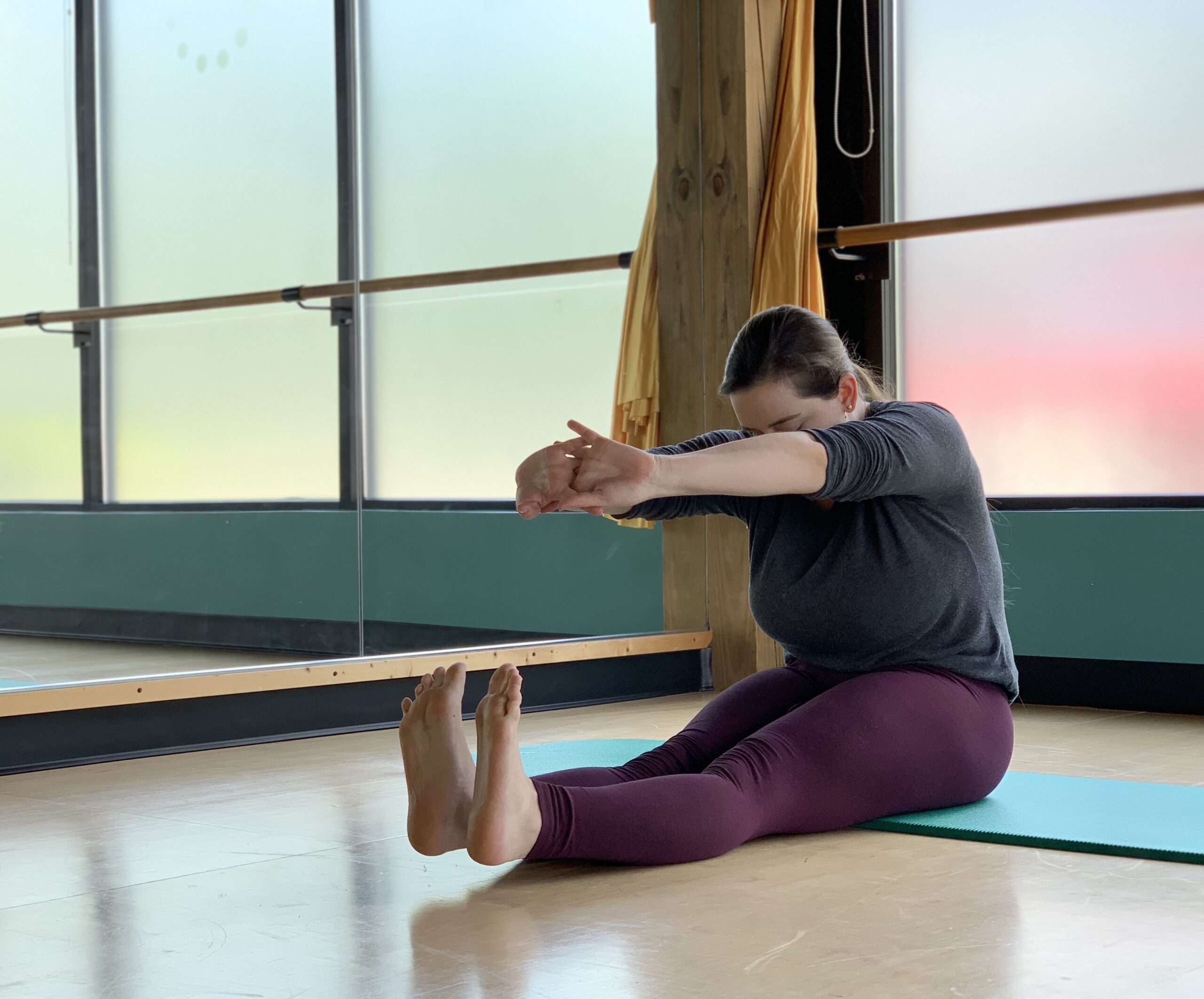
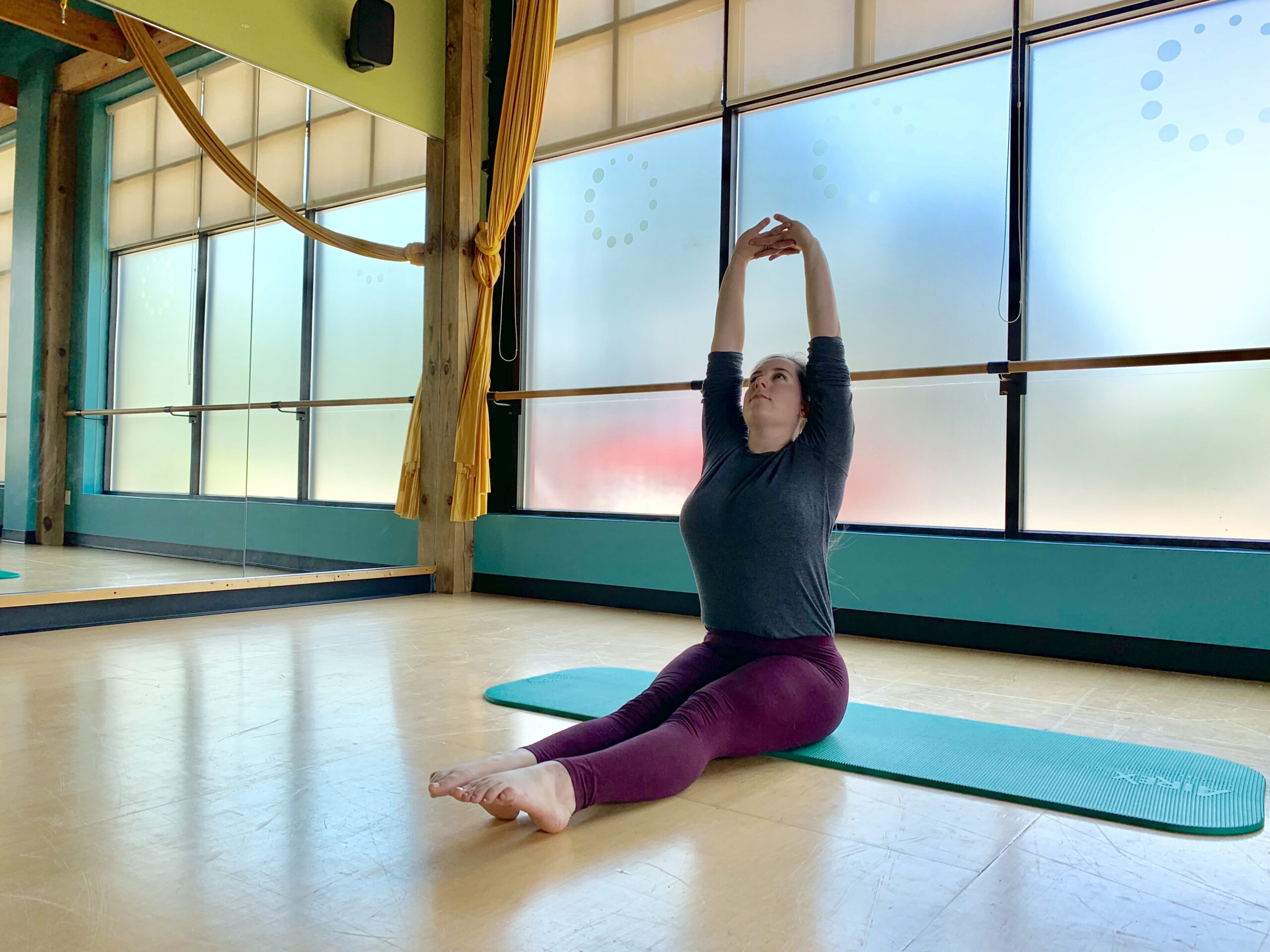
Can anyone take a Gyrokinesis class?
Yes. For example, any Gyrokinesis class, although structured, can be modified to allow for a seated or standing position if going to the floor is challenging. If you’re more comfortable seated or standing and can’t get to the floor comfortably, make sure to let your instructor know ahead of time so modifications can be given.
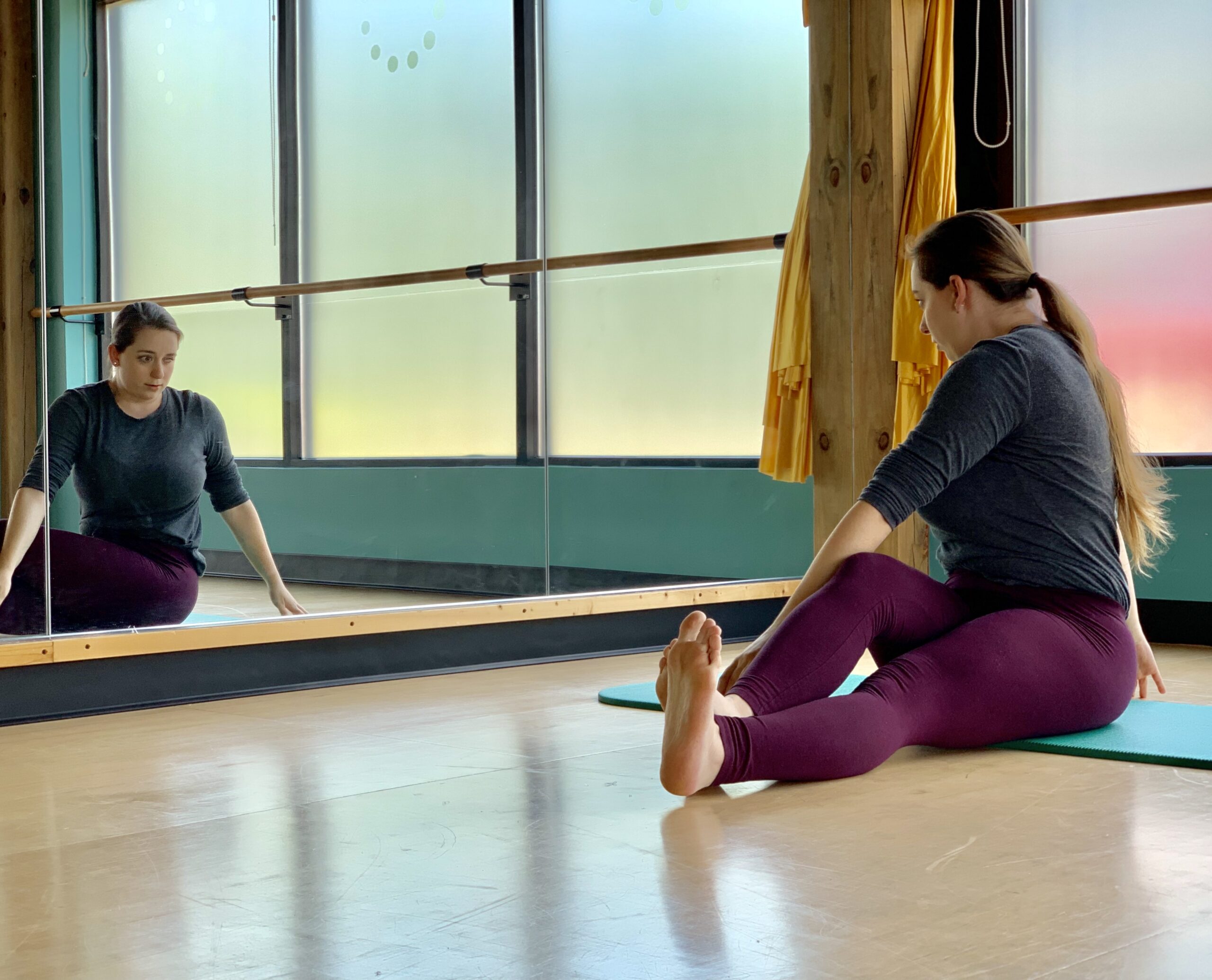
Is it easy to incorporate Gyrokinesis into daily practice at home?
It’s so easy. There is a series of seated and floor exercises that we give to clients so that they can practice the spinal motions and core connections we use in class to facilitate other movements.
Some days, I spend more time working at my computer than I originally planned to and my spine gets a little stiff. After spending just five to ten minutes doing the spinal motions “homework” for Gyrokinesis, the tightness from sitting at a desk disappears. I even gave my mom the information and when we’re on the phone I ask her if she’s “done her homework today.” She gets a kick out of that but also knows that its just because I love her and want her body to feel its best.
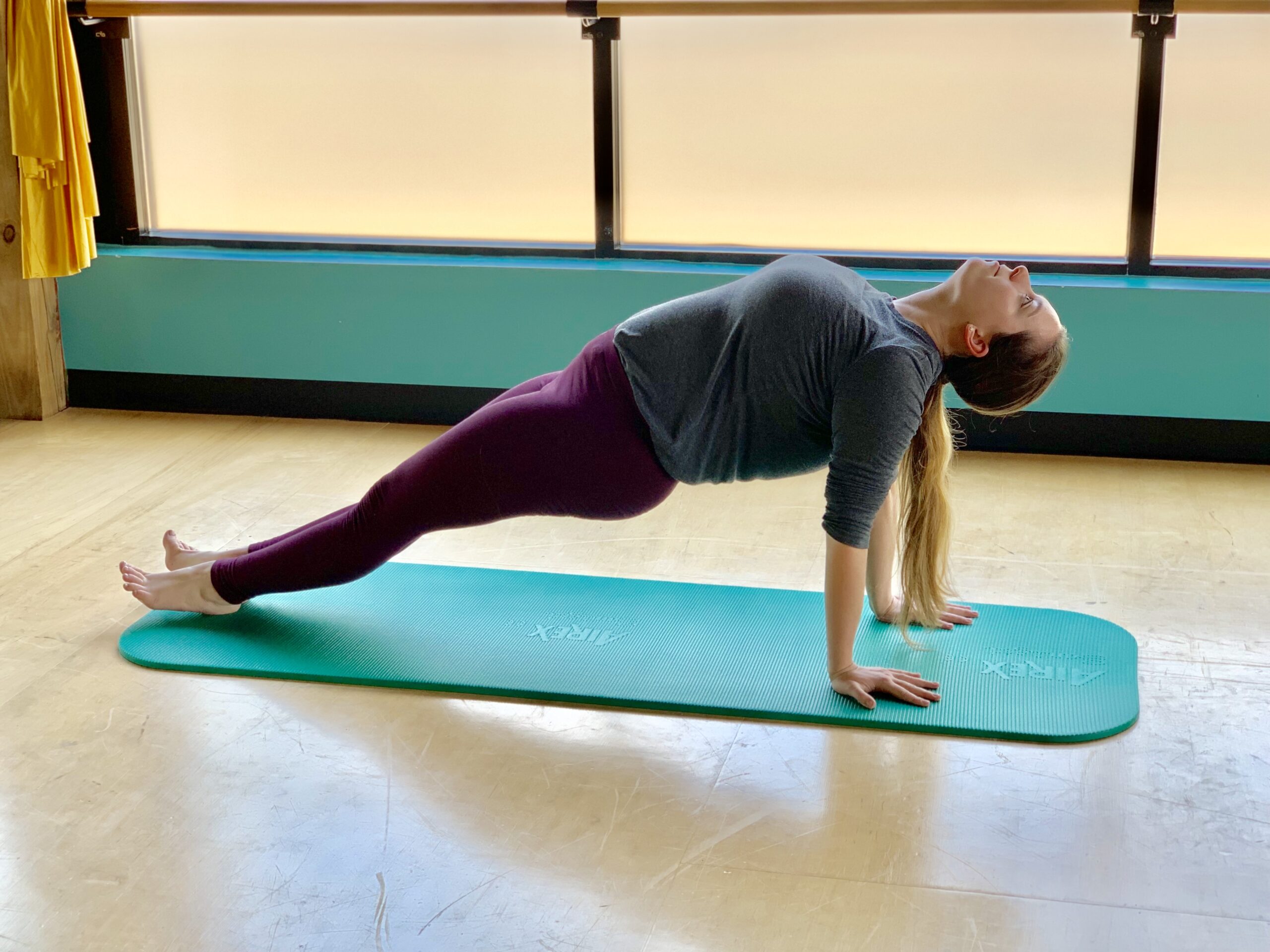
If you could give someone one reason to try Gyrokinesis, what would it be?
It’s a chance to help your body feel its best by creating more space with a focus on decompression and lengthening throughout. You’ll forge new pathways for your body to move with ease and freedom, which in turn allows you to continue to do the things you love to do without restriction.
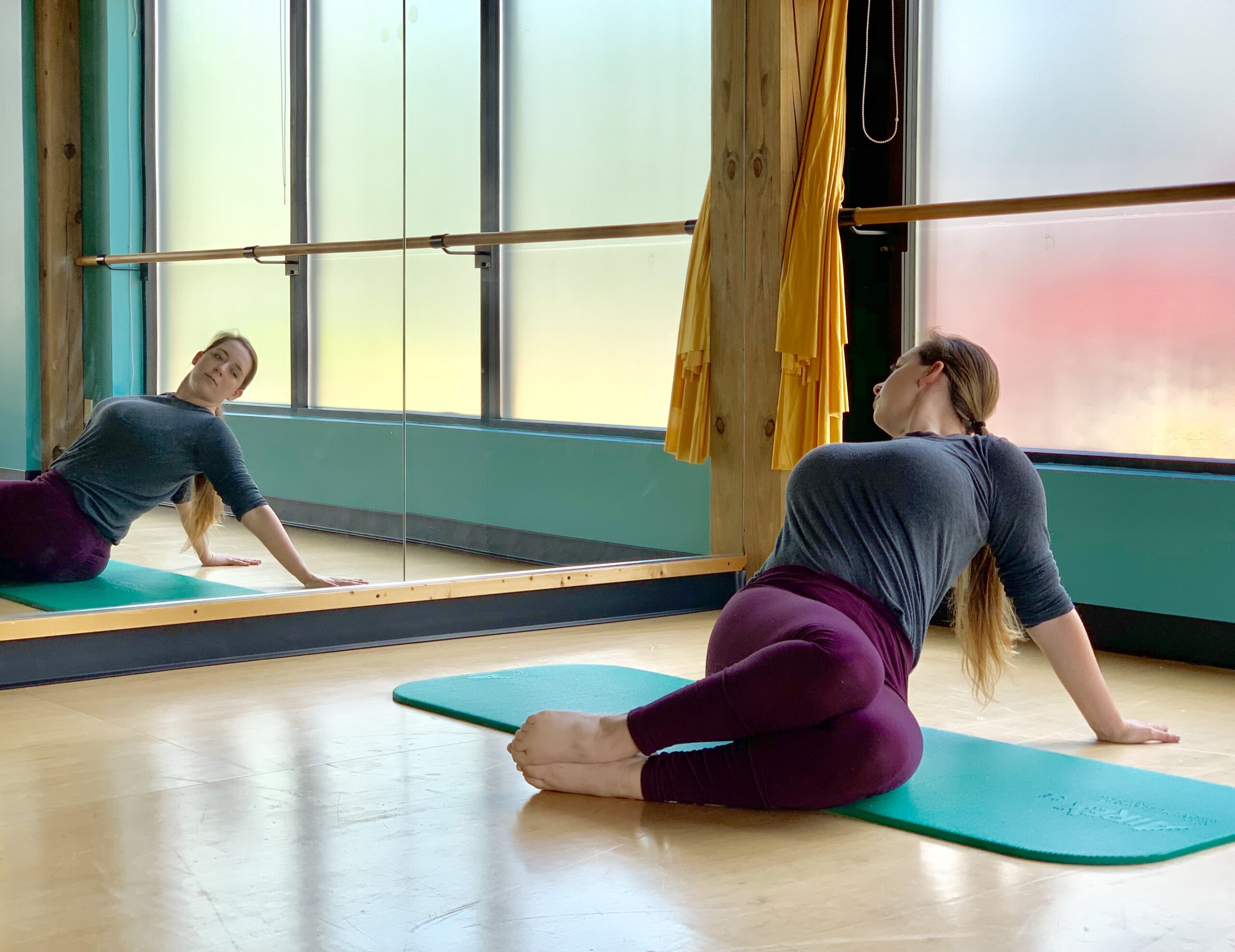
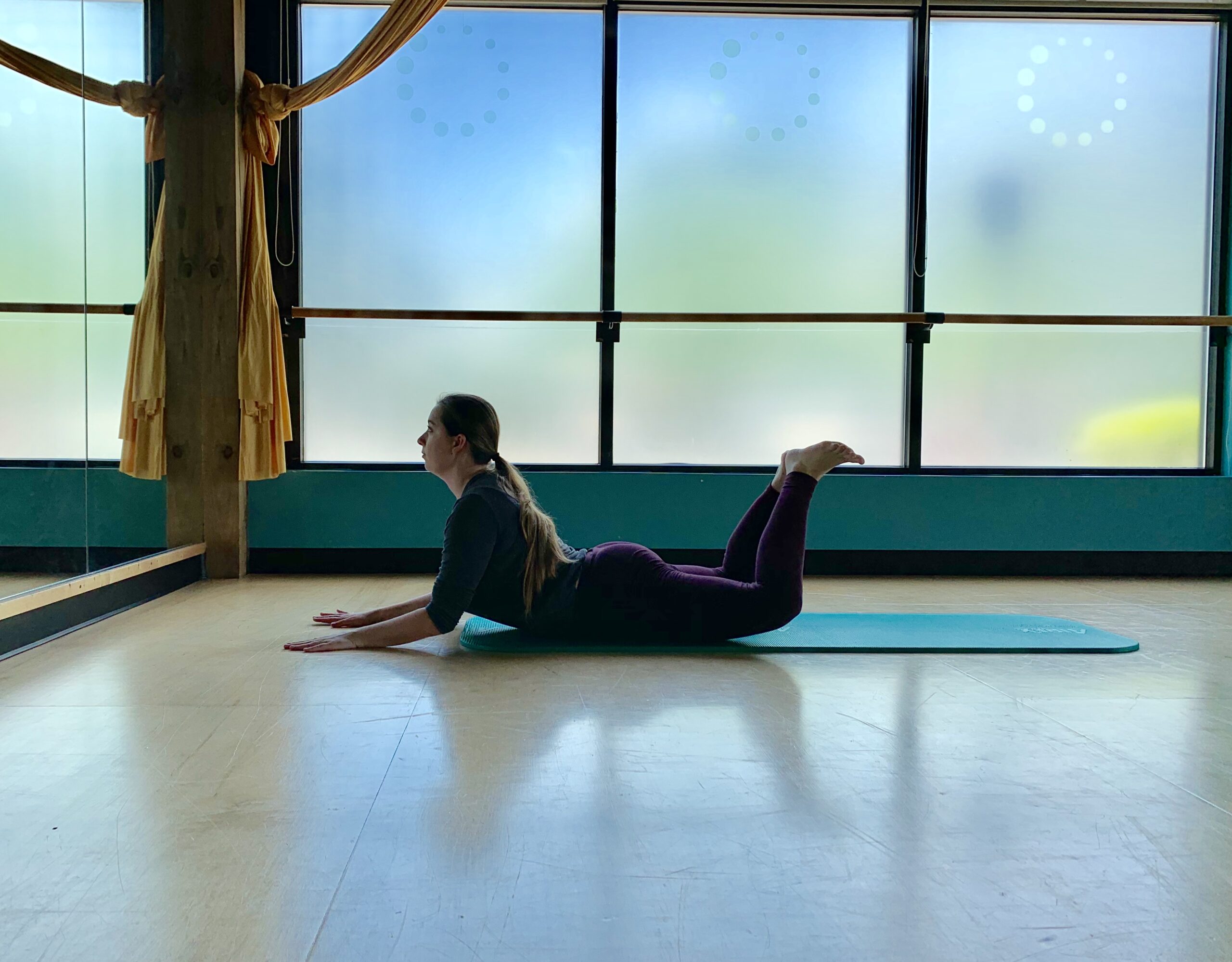
Tell us something about the poses you chose to highlight in the photos we’re seeing here.
The movements here were specifically chosen to showcase the accessibility and ease of this movement modality. But also the beauty and light that radiate from these movements by creating an open, accepting, sponge-like body to absorb all of the things life has to offer you.
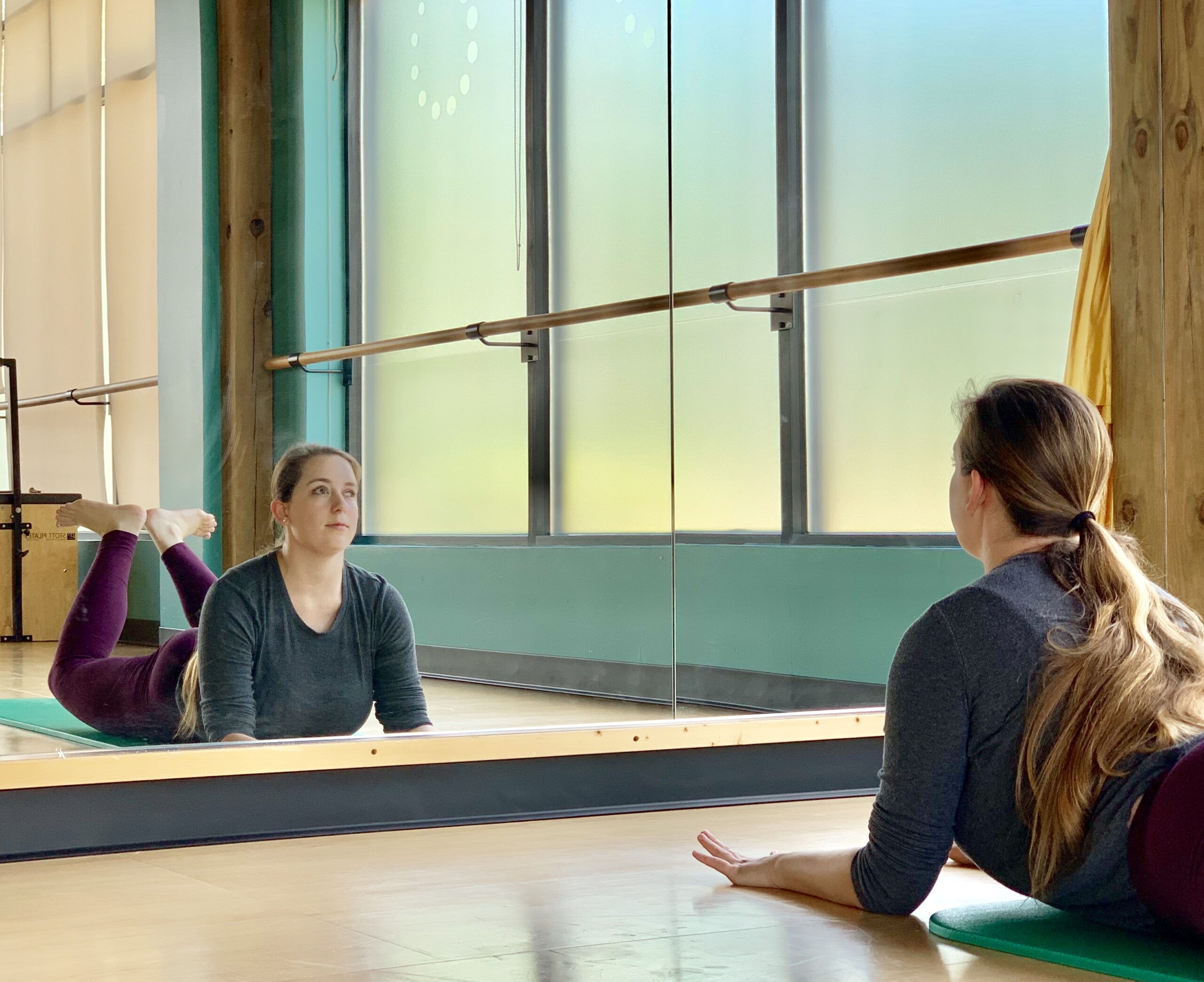
Livestream Gyrokinesis class at MOVE Wellness
Ready to feel it yourself? Enjoy your first MOVE Livestream class FREE – including one of our twice weekly Gyrokinesis classes.
- Gyrokinesis: Tuesday, 10:00 a.m. with Suzanne
- Gyrokinesis: Thursday, 12:30 p.m. with Angela
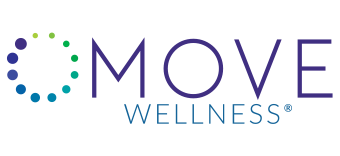
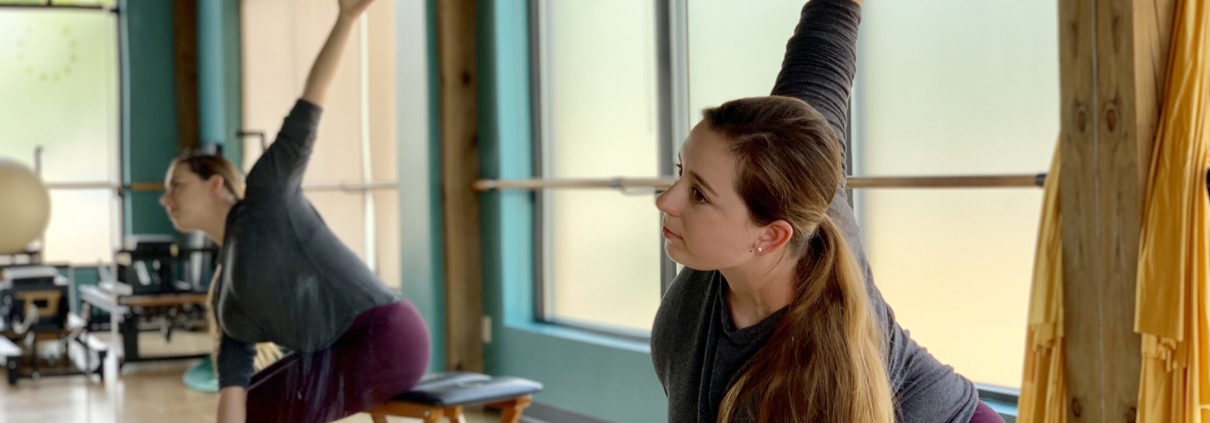

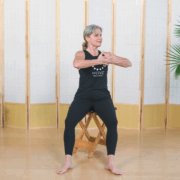
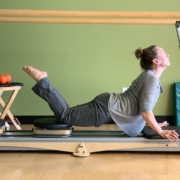
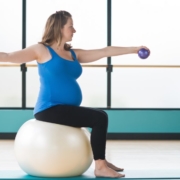
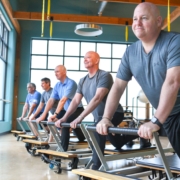
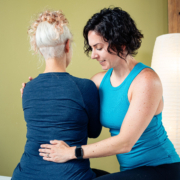


Leave a Reply
Want to join the discussion?Feel free to contribute!